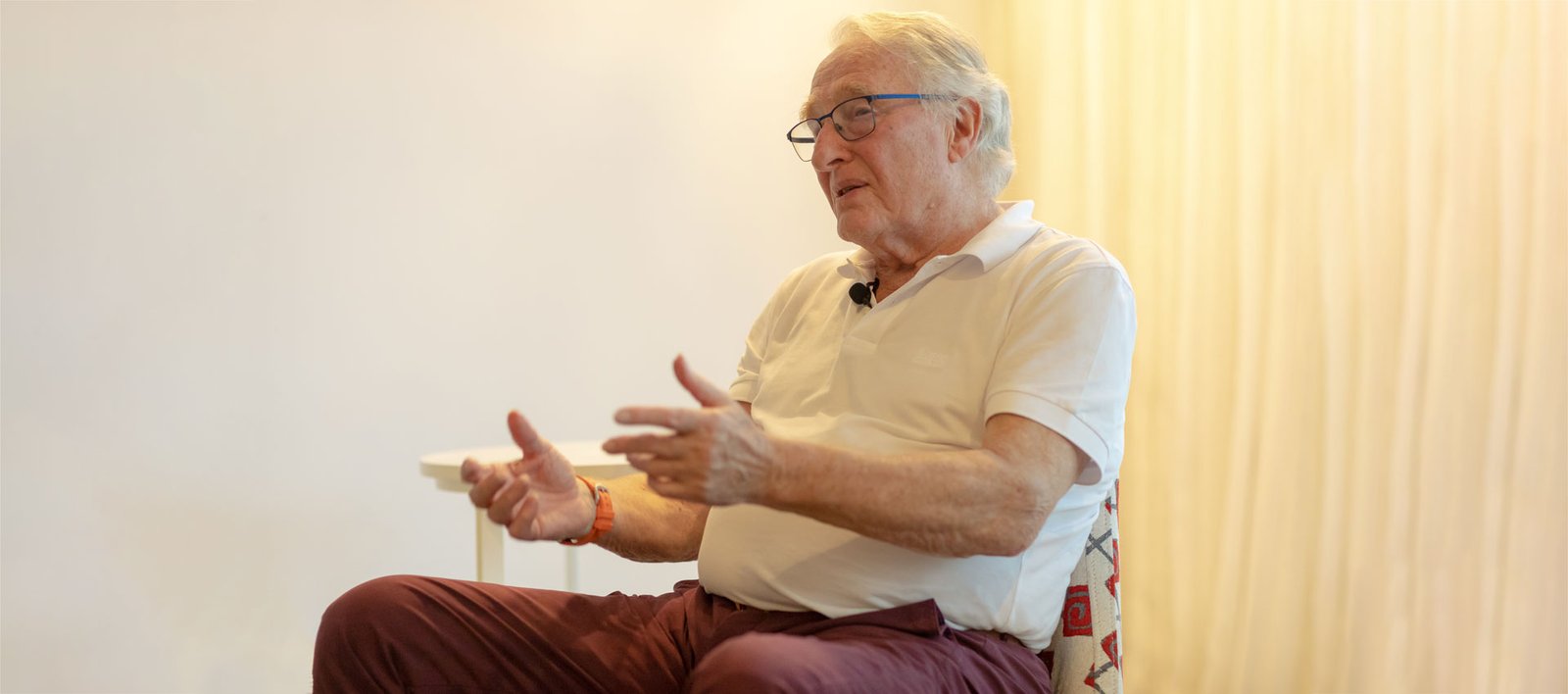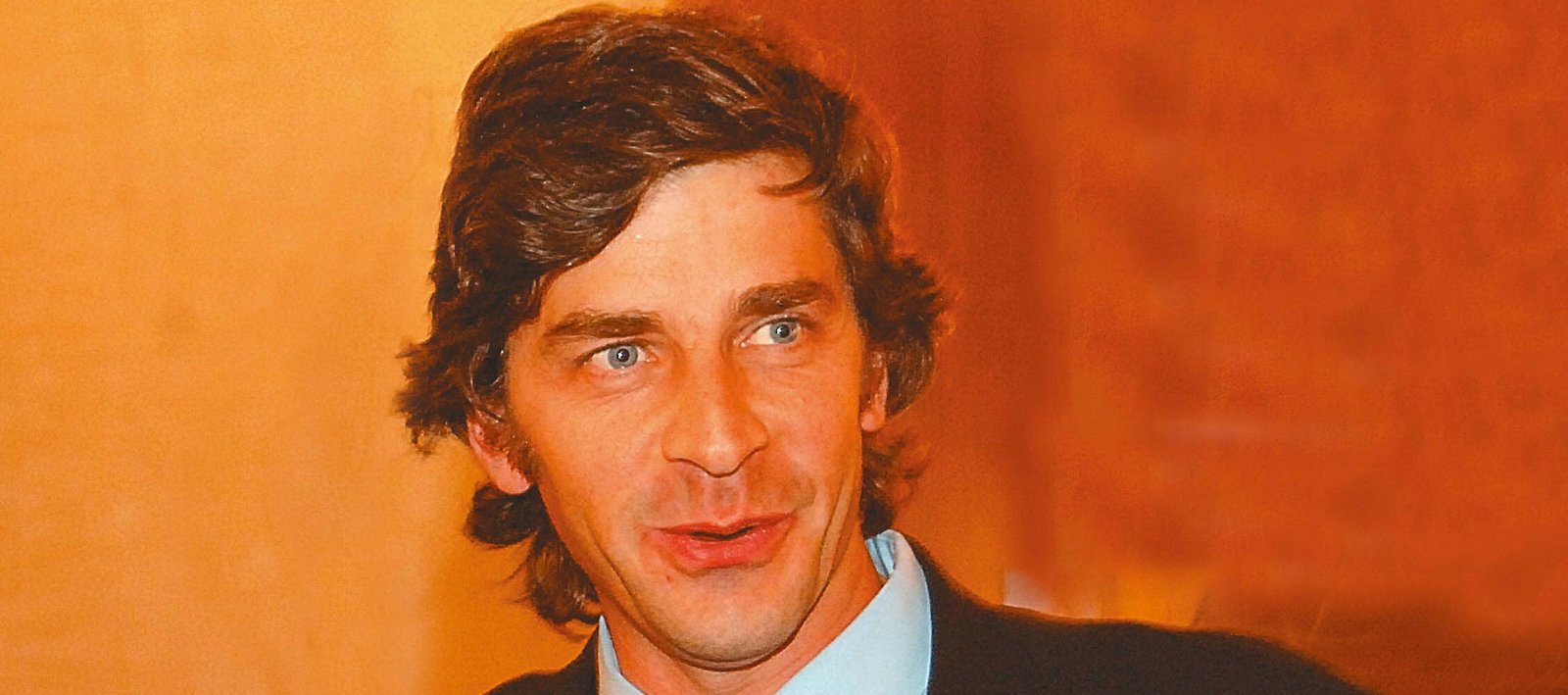
Joe Foster, a fortunate chain of problems
Joe Foster co-founded the Reebok athletic shoe brand with his brother. Now he has released Shoemaker: The Untold Story of the British Family Firm that Became a Global Brand, an autobiography that follows the path of a small family business that became one of the most iconic global brands in the sports industry. Panorama de las Américas had the opportunity to sit down and talk with Foster on his quick visit to Panama, a stop on the tour that the retired entrepreneur, now an author, made through Latin America to promote the book.
By Juan Abelardo Carles R.
Photos: José Rovira
The entrepreneurial environment has grown increasingly changeable, precarious, and risky, especially since the recent global health crisis. The digital ecosystem has accustomed us to expect instant results and immediate gratification, which only increases the risk of frustration for many entrepreneurs today. Joe Foster, the retired co-founder of Reebok, can offer valuable lessons for dealing with these scenarios. In his book Shoemaker: The Untold Story of the British Family Firm that Became a Global Brand, Foster talks about adaptability, resilience, a sense of opportunity, and above all, patience, qualities that helped him transform his small shoe factory into a world-class consortium.
“I didn’t write it as a lesson for anyone, but people tell me they’ve taken it that way,” Foster begins, because “one constant among entrepreneurs is that we always face problems and we have to think of ways to improve things in order to solve these problems. In our case, the problems began very early on, just 18 months in, when we tried to register the name we had chosen for our brand (Mercury). We found out that it was already registered so we had to choose another name –Reebok– which means ‘gazelle’ in Afrikaans and turned out to be quite original and much better. This is one of the stories in the book.”
Foster’s relationship with athletic shoes is not an accident: his grandfather came up with the idea of modifying the soles of the sneakers he produced by adding nails to facilitate traction. It was the year 1900 and athletes at the time welcomed the novelty, which allowed them to gain strength and speed. It was the beginning of sports shoes as we know them. Later, JW Foster & Sons Ltd., as the company was called, was passed down to Foster’s father and uncle. In 1958, Joe and his late brother, Jeff, founded Reebok. “Our family had been making athletic shoes since 1895, and my brother and I knew we wanted to keep doing it. We were focused and we knew where we wanted to go. I think that, nowadays, with social networks and everything else at our fingertips, many people, especially young people, have trouble finding a direction or an identity for themselves in that world. We didn’t have that problem.”

Their experience as part of a family of track shoe makers also allowed them to sidestep potential roadblocks, especially in the beginning when it was just the brothers and their wives. “One of the problems with four people running a company is that you are going to have different perspectives on how it should be run. The age difference between my father and uncle, who inherited the company from my grandfather, was five years, but they fought a lot, to the point that my brother and I literally had to pull them apart at times. They each had a 50% share in the company, but their relationship wasn’t good; in fact, it was doomed. When we founded Reebok, we took a look at our strengths and weaknesses and divided up the areas of work and decision-making. Jeff took care of the factory and I took care of the rest: marketing, sales, business trips, etc.,” recalls Foster.
And so, although Joe was keen to expand the business outside of Great Britain, the investment needed for a market study was prohibitive for the young company. “There were four of us and I wanted to move into America, but the other three said it was too expensive. Fortunately, I came across an advertisement that the British Government had placed in a magazine. They were trying to increase exports to the United States and supported manufacturers by paying for their passage, part of their lodging, and a booth at the National Sporting Goods of America, a major sporting goods trade show in the United States. It was the beginning of our entry into the American market. Still, it took another ten years to consolidate our presence.” This anecdote also appears in the book, demonstrating that, if you want to be persuasive, you must learn to listen to the objections of others.
Their lucky break in the United States came at the hands of the fashion industry. By the early 1980s, Reebok had established its reputation as a boutique brand that produced high-quality running shoes. “One day, our representative in Los Angeles, Aldo Martínez, saw his wife and other women dancing and exercising to music. He asked her what they were doing, and she answered, ‘aerobics.’ Aldo visited the instructors during their classes and noticed that some of the women were wearing a single model of another brand’s shoe while others didn’t wear shoes at all. It occurred to Aldo that they could produce a padded, soft, comfortable shoe in women’s sizes. At first, the other team members weren’t convinced. It felt like a turn toward making dance shoes for women. We made a hundred pairs and gave them to the aerobics fans to try. They loved them and when Jane Fonda wore a pair on her show, things really exploded: we went from billing $9 million a year to $900 million in just four years,” said the businessman.
Maybe it’s a little unfair to speak of a “lucky break.” Reebok’s skill in seizing opportunity is based, among other things, on what Foster calls “finding the white space.” “We always stayed focused, concentrating on what we wanted to do, looking for that space where you can position yourself that your competitors can’t reach. This can only be achieved by thinking of new ways of doing things, but it takes a long time. It requires perseverance, because your first attempt won’t always be successful. People nowadays want to move fast, but that can be a problem, especially with social networks and everything else at our fingertips, all at the same time, because you skip from one idea to another without being able to focus and solve problems step by step.”
And so, as the saying goes, the rest is history… and it’s in the book. They had to deal with growing pains, but Reebok introduced innovative ideas as it expanded. Now retired, Joe’s next challenge is to turn his book into a best-seller and he’ll apply the same methods he used to grow his brand. “Jeff and I never dreamed of becoming number one when we founded the company, but we did it. My challenge now is the book. Some ask me if I have an exit plan if I fail. I don’t. An exit plan may be necessary for those seeking quick gratification, but that’s not what we’re after. We created Reebok, we gave it value, we focused on the brand, and we made a lot of people love it. We never thought about giving up, only about building, and that’s what gave Reebok a winning culture.”




Leave a Reply